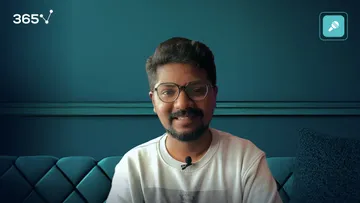Mark Meloon, Senior Data Scientist at ServiceNow

Hi Mark! Glad to have you as an interview guest. Let’s start with a brief introduction. Could you say a few words about yourself to our readers?
Hi, thanks for having me. I’m Mark Meloon, Senior Data Scientist at ServiceNow, a leading enterprise software company. My background is in applied mathematics and then I got a position as an analyst with a small defense contractor. I was there for 13 years before transitioning to data science.
So, you’ve recently transitioned from mathematics into data science. Why did you decide to change your career path and how did you get interested in working with data in the first place?
I became disillusioned with my job because I felt I was working on the same problems over and over. I saw the data science explosion and thought it was a great way to get into a field where there were always plenty of interesting problems.
Unfortunately, I really didn’t have a background in data. I hadn’t learned any statistics in school and my job didn’t give me many opportunities to work with real data.
I see. Did your Mathematics background help you when you first started learning data science?
Yes, having a technical background (both math and programming) did help me learn the material.
Good to hear that. I think it's important to know that learning the essentials makes a difference. Mark, when you started in the data science field, was there a specific "Aha!" moment that made you realize the power of data?
Yes. It was really when I realized that data science was a new way of solving problems. Up until that point, I had to have an analytic model of what was going on and then create software to solve it. In school, I did work on fluid dynamics. That meant I had to know the Navier-Stokes equations, which were complicated, and how to encode them in software. The equations contained all the important phenomena in fluids: diffusion, advection, viscosity, etc.
With data science, you didn’t need to know all those details. You simply specify a general modeling approach—one that didn’t have to deal specifically with the problem you were trying to solve—and the data would do most of the rest of the work. It was a great way of tackling complex problems for which you didn’t have any governing equations.
So, data science definitely made your work a whole lot easier. Mark, you are now a senior data scientist at SerivceNow. However, you’ve said you’ve had to face many challenges before landing your first job as a data scientist. Can you tell us more about these challenges?
Moving into the field was quite difficult. The first recruiter I spoke with—and I only got to speak with her through a connection with a mutual friend—bluntly told me she wouldn’t waste her time with me and that I was unemployable in the field! She told me to go back to what I was doing before.
I realized that a major part of the problem was that I didn’t really understand how to conduct a modern job search. So, I learned a lot about resumes, interviewing, and especially LinkedIn.
It was still tough going. I was getting interviews, but getting some nasty comments. One hiring manager told me that if he were to hire me, the rest of his team wouldn’t respect me! Eventually, I landed my first job and it’s been much easier since then.
Any advice for those thinking of giving up their job search?
There’s a lot of hype in our society about never giving up and chasing your dreams and so forth. That’s great, but far too many people use it as an excuse to throw their resumes at every job listing they see. Yes, you’ll get a lot of setbacks. But you’ve got to learn from them.
Chase fewer jobs but do a better job on them and do a post-mortem afterward so you can learn.
If you are thinking about giving up, there are a few things to consider. One is to seek professional help in your job search. There are online courses for things like resume writing and LinkedIn. Also, if you are having trouble landing a job as a data scientist, ask yourself if you might be okay working as something other than a data scientist. Machine learning engineer has become quite sought after. Even things like being a data savvy-manager are in great demand.
That’s quite interesting - fewer job applications can actually increase an aspiring data scientist’s chances of success! I’m sure our readers will appreciate your advice! Mark, you’re also a data science interviewer. Based on your experience, which are the top qualities most companies are looking for in potential candidates?
I search for a curiosity to look for what might go wrong. One of my favorite questions is to describe a problem for them to solve. I give them pretty basic instructions and ask them how they would start. Almost all of them give lip service to things like fully understanding the problem, data issues, EDA, etc. If someone takes the time to ask if there are missing values, skewed distributions, etc., that is something I like to see.
Another thing I look for is the answer “I would check with the subject matter expert and/or stakeholder” when I ask them things like “How would you measure the performance of your model?” I don’t want someone assuming they know the right metric to use because the business may want something else (e.g., accuracy vs. precision)
So, curiosity and a knack for creative problem-solving are a big plus. You also share the ‘secrets’ to landing a job in data science on your YouTube channel and email list. What really motivated you to start helping aspiring data scientists develop the skills needed to find the right job for them?
As I said, I had a very tough time breaking into data science. Not only was it discouraging, but I also wasn’t working at the time so I was dipping into my life savings each month. It was really frustrating because I had learned most of the material from online courses, yet I wasn’t given a chance to demonstrate my knowledge. So, I know where people are coming from.
There are some job search resources out there, but very few that are dedicated to data science. I know what works because I’ve been on both sides of the interviewing table and I continue to learn new techniques beginning data scientists ought to use.
As for why I continue to help them, I’m really thrilled when someone tells me that I was able to help them in their search.
Sounds like a truly gratifying experience. Now, let’s now talk about your experience as a conference speaker, Mark. In your opinion, why is it important for aspiring data scientists to attend conferences in their field?
The best way to get an interview is to make a connection with someone. LinkedIn can be very helpful but sending the right message to the right person requires a skill. Meeting people at conferences, those who can help you with your search is a great way of fast-tracking your search. Don’t waste time talking with people also looking for jobs! Also, going to these conferences help you understand what data science is being used for today.
Plus, it’s very motivating to attend conferences! It’s natural to get discouraged at times, but attending one of these will help get you ready to give it your all again. There is high-energy at these events! In fact, I encourage people not to wait until they get home to take action; do something each night when you go back to your hotel room! Strike while the iron is hot!
A little bit every day goes a long way, right? Mark, in conclusion, is there a nifty tool that you discovered or were introduced to, which you now can’t live without and want to share with our readers?
The single biggest tool was Streak, a plugin for Gmail. Get yourself a new Gmail account only for your job search and install this plugin. It’s a CRM tool, so you can keep track of what “stage” you are in with each company. Define stages like “Submitted resume”, “Phone call with a recruiter”, “First phone interview”, etc. Then keep updating your record with each interaction you have with a potential employer. And make sure to use tags or labels on each message so you can quickly pull up all emails for a particular company. Being organized during a job search is critical!




